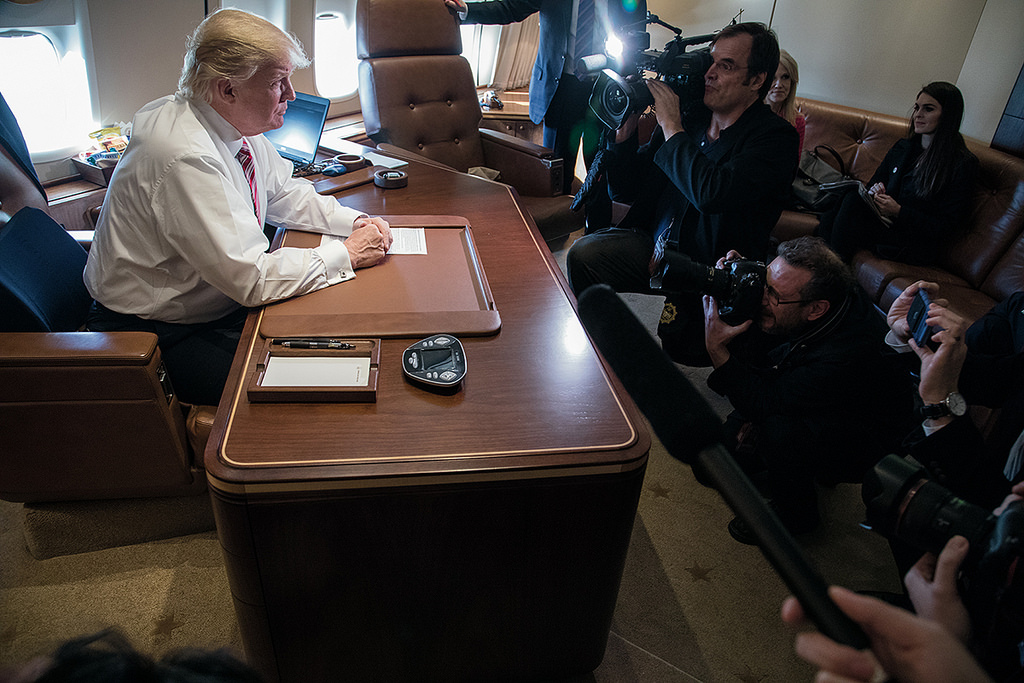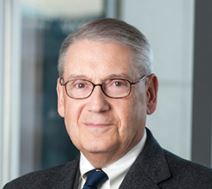Trump and Government (Dis-)Service
A few moments before midnight on Dec. 31, 1962, the lights were dimmed in the old gym at West Point during the new year’s ball for plebes (first-year students). In those years plebes were not permitted to go home for Christmas, and these few moments of discreet darkness enabled us, the Class of 1966, to kiss our dates while avoiding the strictly prohibited public display of affection.

Published by The Lawfare Institute
in Cooperation With

A few moments before midnight on Dec. 31, 1962, the lights were dimmed in the old gym at West Point during the new year’s ball for plebes (first-year students). In those years plebes were not permitted to go home for Christmas, and these few moments of discreet darkness enabled us, the Class of 1966, to kiss our dates while avoiding the strictly prohibited public display of affection.
Reality returned when the lights came back on, but no amount of light could show us what lay ahead. We knew only that we were being prepared for a life of duty to our country. We could not know that of the 807 of us who took the oath that past July only 579 would graduate. We could not know that President John F. Kennedy, who had inspired so many of us to serve and had recently sat among us at the Army-Navy game, would be dead within the year. We could not have predicted that 30 of us would die in the Vietnam War. Nor that presidential lies about Vietnam and Watergate would shake our nation to its core and undermine Americans’ confidence in the Constitution we had sworn to defend.
Fifty years earlier, the Class of 1916 no doubt had a similarly good time at its plebe new year’s ball (probably with dimmed gas lights), its members similarly unaware of the challenges they would face. They could not have known they would fight and win two world wars, survive the Great Depression, and help shape America’s role as the leader of a world based on the hopeful ideals enshrined in the Charter of the United Nations.
Every generation of Americans has met its challenges by turning to the Constitution and the principles embodied in it. They have understood that the Constitution, not ethnic, tribal or religious affiliation, is what holds us together. And hard experience has shown that the Constitution is only as good as the people who bring it to life. Said differently, our democracy is made real by the men and women who serve in Congress, the courts, the executive departments and agencies, and in a free press; and, at its base, by informed citizens. When those institutions are wrongfully attacked or abused, particularly by a president, our democracy is put at peril.
We are being tested anew. Today’s challenges are brought about not only by the scale and rate of global change but also by the policies and actions of President Trump.
Many of Trump’s stated policy objectives enjoy wide support: bolstering the economy, bringing jobs back to this country, tax reform and infrastructure investment. There is, however, also much opposition to some aspects of his agenda.
On foreign policy, there is widespread bipartisan dismay at his rejection of 70 years of support for the liberal international world order that, however imperfect, has kept us strong and secure. Moves such as his uncertain support of the basic tenets of NATO, his rejection of the Paris climate accord and the Trans-Pacific Partnership trade deal, and his recognition of Jerusalem as Israel’s capital (with nothing in return) explain why many in the national security community question his understanding of U.S. interests and how to protect them.
At home, his lack of outrage at Russian interference in the 2016 election is indefensible. His firing of James Comey as FBI director and subsequent actions raise credible concerns that he has engaged in criminal obstruction of justice to protect himself and family members. His insistence that the Russia investigation led by Special Counsel Robert Mueller is a “witch hunt” is unfounded. His unprecedented criticism of the FBI is a thinly veiled effort to intimidate agents who are investigating key members of his campaign and family. His criticism of the intelligence community when he disagrees with assessments are cause for grave concern.
The courts, law enforcement departments and intelligence agencies are staffed by public servants who commit to assuring the health of our democracy. The basic foundation of that duty is independence; it is necessary that they are insulated from political influence. When that independence is threatened by bullying from the White House, in my experience the men and women who have sworn to defend the Constitution do not buckle under. They have not pledged supine fealty to a feudal liege and they dig in harder to do their duty.
It is encouraging that Trump recently told the New York Times that he believes that Mueller will treat him “fairly.” But the president also said something quite striking: “I have absolute right to do what I want to do with the Justice Department.” It is not possible to imagine a president who truly understands and supports U.S. democracy saying that. Mueller may well read those two statements, taken together, as a threat to take action if the president concludes he was not treated fairly. Does the president understand that no person, including him, has the right to determine whether he has been treated fairly by a judicial or investigative process? That is up to the courts or, in President Trump’s case, perhaps also Congress and the public.
Perhaps most troubling is Trump’s habit of making up things to suit his purpose while dismissing as “fake news” facts that he doesn’t like but that are demonstrably true. This is compounded by his attacks on the media as the “enemy of the people,” a statement condemned by retired Adm. William McCraven as perhaps “the greatest threat to democracy in my lifetime.”
Winston Churchill, addressing the growing strength of fascism in Europe, said in 1938 that “the lights are going out; but there is still time for those to whom freedom and parliamentary government mean something, to consult together”—and to act.
I have found reasons for hope in recent conversations with a number of young Americans. Some are in college or graduate school; others are beginning their careers in government or the private sector. All understand their duty to get involved and to vote. This thinking, and the actions that follow, is what keeps the lights on.
Contrast that with a president who is dimming the lights, not so this country’s plebes can steal a furtive kiss but to obscure truth and promote views that are destructive to our nation’s institutions and values. It’s clear that the lights must stay on to make America right again.




